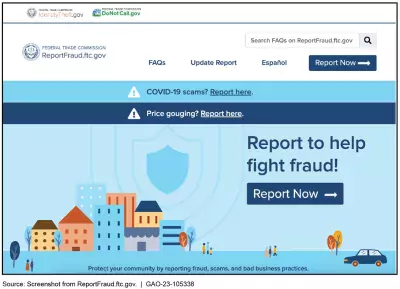Franchising is an Attractive Business Opportunity, But Not Without Challenges
Billions of dollars in sales and millions of workers employed—franchising is a popular business arrangement in the U.S. It spans hundreds of industries like fast food restaurants, hotels, and gyms. Franchising can also offer individuals the opportunity to own their own business using the brand name recognition, operational and marketing support, and training of larger established businesses.
However, franchising is not without risks, and franchise owners may struggle under the requirements of the brand they represent. Today’s WatchBlog post looks at our new report on challenges franchise owners face. We’ll also look at how the Federal Trade Commission, which oversees franchising, collects information about franchise owners’ concerns.
Image

Franchise owners lack control over key business operations
There are a lot of attractive incentives for owning a franchise that have made them popular. But some franchise owners we talked to faced challenges with the requirements of operating under a brand name. For example, the brand owner may require franchise owners to use certain suppliers that charge above-market prices. Franchise owners in our discussion groups expressed concerns that the brand owner was using advertising fees on other brands that did not directly benefit their business and required them to operate at certain hours even if it meant operating at a loss. Franchise owners may also have to pay the brand owner a percentage of their gross income for the right to use the brand owner’s name and business model, even if the business is losing money.
Prospective franchise owners may not read important disclosures
New franchise owners may not fully understand the complexity of a franchise arrangement. The Federal Trade Commission (FTC) requires brand owners to disclose in writing certain information about the franchise arrangement to prospective owners that would allow them to compare the risks and benefits of purchasing a franchise.
But, even though the disclosures contain important information for decision-making, prospective franchise owners do not always fully read or understand it, according to attorneys, state regulatory officials, and trade association representatives we interviewed. This may be because the disclosures can be several hundred pages long and hard to understand. Prospective franchise owners may also rely on information from franchise brokers or salespeople instead of the disclosures and some prospective franchise owners do not speak English as their first language or may have limited business experience.
FTC tries to help prospective owners by publishing an educational guide about some of the challenges franchise owners may face and key aspects of the disclosures they receive. But when we talked to franchise owners about the resources available to them from FTC, most told us they were generally unaware of FTC’s guide. Having this information could have allowed these franchise owners to better understand the commitment or agreements they were making. Because of this, we recommended that FTC enhance its efforts to educate prospective franchise owners on the importance of the disclosure document and more broadly publicize its guide.
Franchising concerns may be underreported
Consumer complaints are used by FTC to inform its oversight and enforcement of a wide range of consumer protection issues and more than 70 laws. We analyzed the data FTC collects about complaints. From 2018 through 2022, there were about 5,900 franchise-related complaints, representing less than 1% of all complaints FTC receives from consumers about fraud or other deceptive business practices.
Image

Franchise owners, attorneys, state regulatory officials, and others told us some of the reasons franchise owners may not file complaints to FTC about questionable brand owner business practices. One of these reasons was a lack of awareness about their ability to do so. When we asked franchise owners about whether they had ever filed a complaint with FTC about the concerns they voiced to us, participants in eight of our nine discussion groups said no. In addition, it may not be clear to franchise owners that FTC’s ReportFraud.ftc.gov website would apply to the issues they are experiencing because they may not view them as fraud-related.
Further, franchise owners may not file a complaint for fear of violating terms of their contracts by speaking out against their brand owners. The reasons franchise owners gave for not filing complaints, the level of concerns franchisees and other stakeholders shared with us, and the number of actions some state regulators are taking against brand owners, all led us to conclude that franchise owners’ concerns may be underreported to FTC. Because of the lack of awareness and other concerns, we recommended that FTC increase outreach and education efforts to the franchise community. We also suggested FTC work with stakeholders to improve owner awareness and understanding of its complaint process.
If you own a franchise or are considering purchasing one and have a complaint about questionable business practices or disclosures you’ve received from a brand owner, you can submit it to the FTC by visiting ReportFraud.ftc.gov.
Learn more about our work on franchising by reading our new report.
- Comments on GAO’s WatchBlog? Contact blog@gao.gov.
GAO Contacts
Related Products

GAO's mission is to provide Congress with fact-based, nonpartisan information that can help improve federal government performance and ensure accountability for the benefit of the American people. GAO launched its WatchBlog in January, 2014, as part of its continuing effort to reach its audiences—Congress and the American people—where they are currently looking for information.
The blog format allows GAO to provide a little more context about its work than it can offer on its other social media platforms. Posts will tie GAO work to current events and the news; show how GAO’s work is affecting agencies or legislation; highlight reports, testimonies, and issue areas where GAO does work; and provide information about GAO itself, among other things.
Please send any feedback on GAO's WatchBlog to blog@gao.gov.




